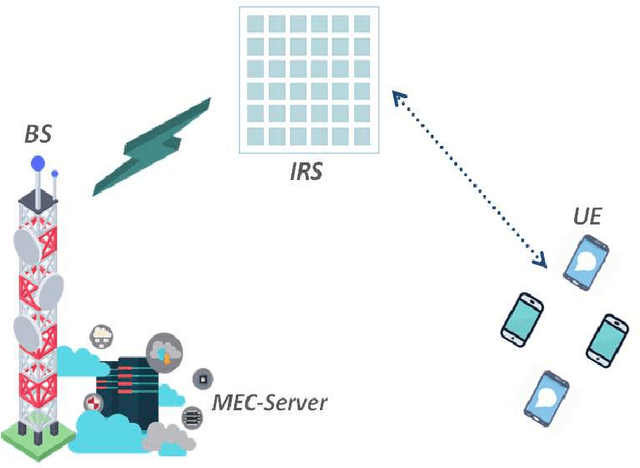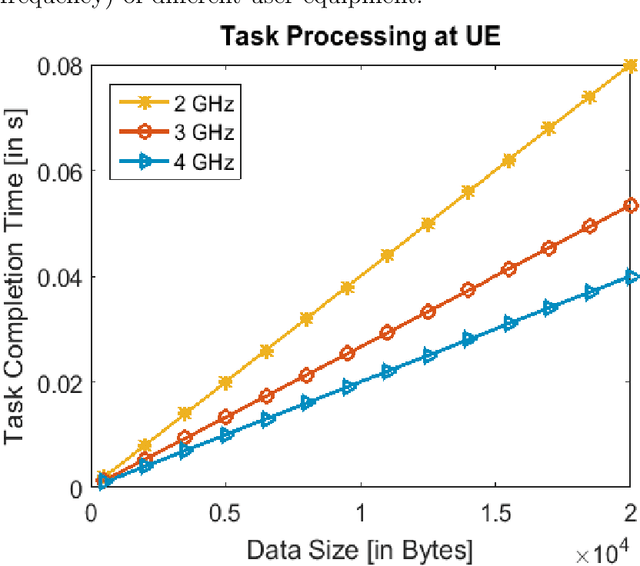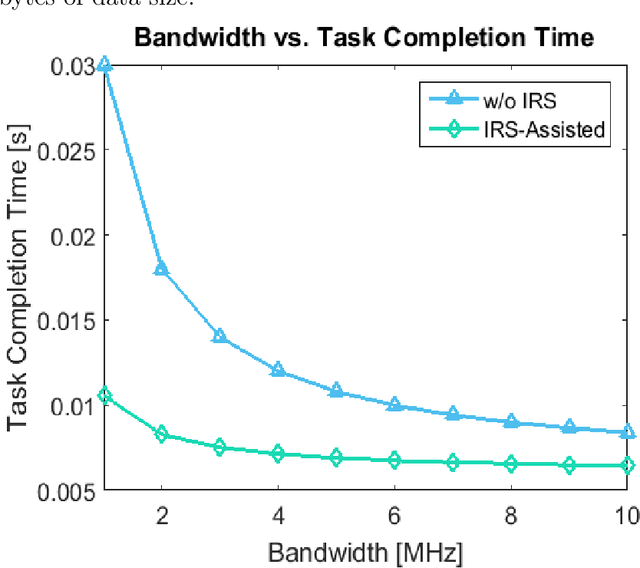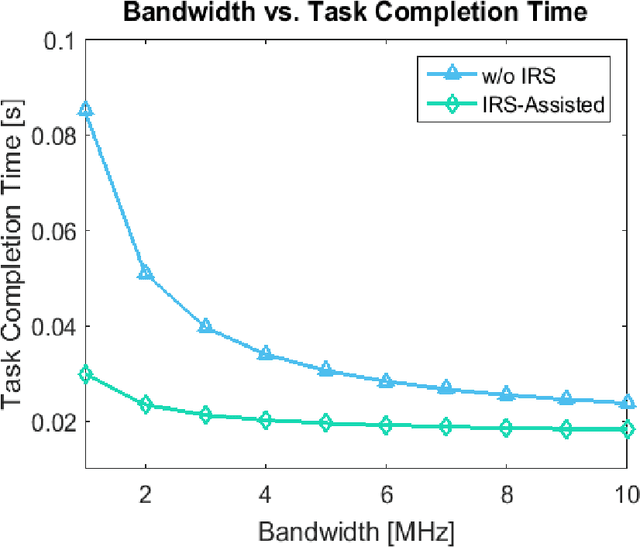IRS for Multi-Access Edge Computing in 6G Networks
Paper and Code
Jun 10, 2022



Computation offloading in multi-access edge computing (MEC) is an effective paradigm for enabling resource-intensive smart applications. However, when the wireless channel utilized for offloading computing activities is hostile, the proper advantages of MEC may not be completely realized. Intelligent reflecting surface (IRS) is a new technology that has recently attracted significant interest can optimize the wireless transmission environment in a programmable way and improving the connectivity between user equipment (UE) and base station (BS). In this paper, the performance of MEC architecture is analyzed considering both IRS-assisted and without IRS communication scenarios in the context of the urban micro cellular scenarios. The research obtained that the deployment of IRS can reduce the spectrum and energy consumption significantly.
 Add to Chrome
Add to Chrome Add to Firefox
Add to Firefox Add to Edge
Add to Edge